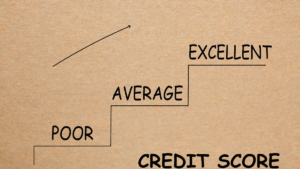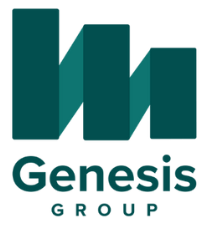Reading Time: 13 minutes
Navigating Homeownership in Canada:

Welcome to the exciting journey of homeownership in Canada, a path filled with opportunities and important decisions. As a new home buyer, one of the most critical steps in this journey is understanding the roles of credit scores and mortgages. This knowledge is not just a prerequisite; it’s a powerful tool that can significantly influence your home-buying experience and the quality of the home you can afford.
The Importance of Credit Scores in Home Buying
When it comes to purchasing a home, your credit score is much more than just a number. It’s a reflection of your financial reliability and a key factor that lenders consider when approving mortgages. A good credit score can open doors to better mortgage rates and more favorable terms, ultimately impacting your monthly payments and the total cost of your home.
Why Credit Scores Matter:
- Determining Mortgage Eligibility: Your credit score is one of the first things lenders look at when you apply for a mortgage. It helps them assess the risk involved in lending to you.
- Influencing Interest Rates: Generally, a higher credit score can qualify you for lower interest rates, which means lower monthly payments and less money paid over the life of the loan.
- Access to More Options: With a strong credit score, you’ll likely have more mortgage options available from various lenders, giving you the opportunity to shop around for the best deal.
Setting the Stage with Your Credit Score
Your journey to homeownership starts long before you apply for a mortgage. It begins with building and maintaining a strong credit score. Understanding how your financial actions influence your credit score is essential. Paying bills on time, managing credit card balances, and avoiding excessive debt are just a few ways to positively impact your score. Remember, a good credit score is not built overnight, but with consistent and responsible financial behavior, it is achievable.
As you embark on this exciting journey, remember that knowledge is your greatest ally. Understanding the intricacies of credit scores and mortgages will empower you to make informed decisions, paving the way for a smooth and successful home-buying experience.

Understanding Credit Scores

In the journey towards homeownership, one of the most crucial aspects for prospective buyers in Canada to understand is the concept of a credit score. This seemingly simple number plays a pivotal role in the home buying process, particularly when it comes to securing a mortgage.
What is a Credit Score?
A credit score is a numerical representation of your creditworthiness. It’s derived from your credit history and is used by lenders to assess the risk associated with lending you money.
- Why It Matters: In the context of buying a home, your credit score can significantly influence your ability to secure a mortgage, the terms of the mortgage, and the interest rate you’ll be offered. A higher score typically means lower interest rates, which translates into lower monthly payments and a more affordable home loan.
Factors Influencing Your Credit Score
Understanding what impacts your credit score is the first step towards managing it effectively. Here are the key components:
Payment History (35%): Consistency in paying bills on time is the most significant factor. Late or missed payments can detrimentally affect your score.
Credit Utilization (30%): This is the ratio of your current revolving credit (like credit card balances) to the total available revolving credit. Lower utilization rates are better for your score.
Length of Credit History (15%): A longer credit history typically contributes to a higher score, as it provides more data on your spending habits and repayment behavior.
New Credit Inquiries (10%): Every time you apply for new credit, it can slightly lower your score. Frequent applications can raise red flags for lenders.
Types of Credit in Use (10%): A mix of credit types (like credit cards, car loans, student loans) can be beneficial, as it shows you can manage different types of credit responsibly.
Improving Your Credit Score
For those looking to buy a home, especially for the first time, improving your credit score can be crucial. Here are some tips:
Pay Bills on Time: Set reminders or automate payments to ensure you never miss a due date.
Keep Credit Card Balances Low: Try to maintain a low credit utilization ratio.
Avoid Opening New Credit Lines Unnecessarily: Only apply for new credit if it’s essential.
Regularly Monitor Your Credit Report: Check your credit report for errors and rectify any inaccuracies. In Canada, you can obtain a free credit report once a year from credit bureaus like Equifax or TransUnion.
Understanding and managing your credit score is a fundamental step in your home buying process. It not only positions you favorably for mortgage approvals but also ensures that you get the best possible terms on your loan.

Basics of Mortgages in Canada

Navigating the world of mortgages is a fundamental part of the home-buying process in Canada. Understanding the different types of mortgages, along with their terms and rates, is crucial for making informed decisions that align with your financial goals and needs.
Types of Mortgages
Fixed-Rate Mortgages:
- Stability and Predictability: The interest rate remains the same throughout the term of the mortgage, which can range from 1 to 10 years. This means your monthly payments are consistent, making budgeting easier.
- Best For: Buyers who prefer stability and are risk-averse, especially beneficial in an environment where rates are expected to rise.
Variable-Rate Mortgages:
- Rate Fluctuations: The interest rate can change based on the market conditions and the lender’s prime rate. While this means your payments can vary, these mortgages often start with lower rates than fixed-rate mortgages.
- Best For: Buyers who are comfortable with some level of risk and can afford payment fluctuations. Ideal in a declining rate market.
Adjustable-Rate Mortgages (ARM):
- Adjustable Payments: Similar to variable-rate mortgages in that the interest rate can fluctuate, but the difference lies in the payment structure. With ARMs, both the interest rate and the mortgage payments can change.
- Best For: Buyers who are financially flexible and can handle changes in both interest rates and monthly payments.
Mortgage Terms and Rates
Understanding Mortgage Terms:
- Amortization Period: This is the total life of the mortgage, typically up to 25 years. The length of the amortization affects both your interest costs and monthly payment amounts.
- Term: The length of time your mortgage agreement is in effect, which can range from a few months to 10 years. At the end of each term, you’ll need to renew your mortgage.
How Rates Are Determined:
- Lender Factors: Banks and lenders set mortgage rates based on the cost of lending and their desired profit margin. They consider factors like the Bank of Canada’s rate, competition in the market, and overall economic conditions.
- Personal Factors: Your credit score, income, debt levels, and the size of your down payment can all influence the rate you are offered. Higher risk factors typically result in higher rates.
Understanding these mortgage basics is key to choosing a loan that fits your financial situation and home-buying goals in Canada. Whether you opt for a fixed, variable, or adjustable-rate mortgage, make sure it aligns with your long-term financial strategy.

Credit Score and Mortgage Approval

In the Canadian real estate market, your credit score is a critical factor that lenders evaluate during the mortgage approval process. Understanding the role of your credit score and how it influences mortgage terms is essential for any prospective home buyer.
Credit Score Requirements for Mortgages
What Lenders Are Looking For:
- Minimum Score Requirements: While requirements can vary by lender, a credit score of 680 is often considered the baseline for approving a mortgage with favorable terms. Scores below this may still qualify for a mortgage but with different conditions.
- Overall Financial Health: Beyond the number, lenders assess the full picture of your financial health, including income stability, debt-to-income ratio, and credit history.
Impact of Credit Score on Mortgage Terms
Influencing Factors:
- Interest Rates: A higher credit score can unlock lower interest rates, significantly reducing the amount of interest you pay over the life of the mortgage.
- Loan Terms: Favorable credit scores may also influence the loan amount, down payment requirements, and amortization periods offered to you.
Understanding the Dynamics:
- The relationship between credit scores and mortgage terms is direct; the better your score, the more attractive the terms. This is because a strong credit score signals to lenders that you’re a low-risk borrower.
Navigating Bad Credit
Options for Lower Credit Scores:
- B-Lenders and Private Lenders: If traditional banks are not an option, B-lenders (alternative lenders) and private lenders may offer solutions, albeit at higher interest rates.
- Improving Your Score: Taking steps to improve your credit score before applying for a mortgage can enhance your options. Simple actions like paying down debts, correcting errors on your credit report, and consistently paying bills on time can make a significant difference.
- Specialized Programs: Some lenders offer programs specifically designed for buyers with less-than-ideal credit scores, which might require higher down payments or have higher interest rates but can still make homeownership achievable.
For many Canadians, navigating the mortgage process with a lower credit score may seem daunting, but there are avenues to explore that can lead to successful homeownership. Understanding how your credit score affects your mortgage options is the first step towards planning and improving your financial situation for the better.

Preparing for Mortgage Application

Embarking on the mortgage application process in Canada requires thorough preparation and an understanding of what lenders expect. This step is crucial in ensuring a smooth journey towards homeownership. Here, we outline the essential documentation and financial preparation needed, alongside insights into effective budgeting and the invaluable role of a mortgage broker, particularly how The Genesis Group can navigate you through this intricate process.
Documentation and Preparation
Necessary Documents:
- Proof of Income: This could include recent pay stubs, employment letters, and tax returns (T1 and Notice of Assessment) from the past two years to prove stable income.
- Proof of Down Payment: Bank statements from the past three months showing the accumulation of your down payment.
- Credit Report: Lenders will require a credit check, but having your credit report can help you understand your standing. In Canada, you can request a free credit report annually from credit bureaus like Equifax or TransUnion.
- Identification: Valid government-issued ID to confirm your identity.
- Other Financial Documents: Depending on your situation, you may also need to provide documentation on existing debts, investments, and assets.
Financial Preparation:
- Ensure your down payment is readily accessible and not tied up in investments that may take time to liquidate.
- Aim to reduce outstanding debts, as a lower debt-to-income ratio can make you more attractive to lenders.
Budgeting for a Mortgage
Understanding how much mortgage you can afford is more than just looking at the purchase price of a home. Consider:
- Monthly Payments: Use online mortgage calculators to estimate monthly payments. Remember to include property taxes, homeowners insurance, and, if applicable, condo fees in your budget.
- Closing Costs: Allocate funds for closing costs, which can include legal fees, land transfer taxes, and home inspection fees, typically ranging from 1.5% to 4% of the purchase price.
- Emergency Fund: Maintain an emergency fund for unexpected expenses without impacting your ability to make mortgage payments.
The Role of a Mortgage Broker
The Genesis Group, with over a decade of experience, plays a pivotal role in simplifying the mortgage application process for Canadian home buyers. Here’s how:
- Expert Guidance: Our mortgage brokers provide personalized advice, helping you understand different mortgage products and which options best suit your financial situation.
- Application Assistance: We streamline the application process, ensuring you have all the necessary documentation and improving your chances of approval.
- Access to Better Rates: Leveraging our network, we can often secure more favorable mortgage rates and terms than you might find on your own.
Preparing for a mortgage application involves careful documentation, financial planning, and strategic budgeting. With the expertise of The Genesis Group, you can navigate this process with confidence, moving one step closer to securing your dream home.

Closing the Mortgage: Final Steps

The journey to homeownership in Canada culminates with the mortgage closing process, a crucial phase where understanding the steps involved and being aware of potential pitfalls can make a significant difference. This stage finalizes your transaction, transferring the property ownership to you and officially making you a homeowner.
Understanding the Closing Process
What to Expect:
- Final Review: Before the closing date, you’ll receive a closing disclosure from your lender. This document outlines your loan details, including the interest rate, monthly payments, and closing costs. Review it carefully for accuracy.
- Legal Representation: In Canada, a lawyer or a notary typically handles the closing process. They’ll ensure that all legal documents are in order, perform a title search, and register the home in your name.
- Closing Costs: Be prepared to settle closing costs, which can include legal fees, land transfer taxes, and other administrative expenses. These costs generally range from 1.5% to 4% of the home’s purchase price.
- Final Walkthrough: Conducting a final walkthrough of the property before closing is advisable. This is your chance to verify that the condition of the home matches what was agreed upon and that all included appliances or fixtures are present.
Common Pitfalls to Avoid
Mistakes New Home Buyers Should Avoid:
- Overlooking Closing Costs: Not budgeting for closing costs can lead to last-minute financial strain. Ensure you have allocated funds for these expenses well in advance.
- Skipping the Final Walkthrough: This step is your safety net to catch any unresolved issues before the property officially becomes yours. Skipping it could mean missing out on the opportunity to have the seller address any problems.
- Not Reviewing Documents Thoroughly: Every document in the closing process is important. Failing to review them carefully can lead to surprises down the line. If there’s anything you don’t understand, ask your lawyer or mortgage broker for clarification.
- Ignoring Insurance: Home insurance is often a requirement before you can close on a home. Securing insurance ahead of the closing date ensures you’re not scrambling at the last minute.
The closing process is the final hurdle in your home-buying journey. By understanding what to expect and being mindful of common pitfalls, you can ensure a smooth transition to homeownership.

Empowering New Home Buyers

As we wrap up our comprehensive guide aimed at demystifying credit scores and mortgages for new home buyers in Canada, it’s important to reflect on the journey ahead. Buying a home is one of the most significant financial decisions you’ll make in your lifetime. It’s a process filled with excitement, anticipation, and, admittedly, a fair share of complexity. However, armed with the right knowledge and resources, you can navigate this path with confidence and security.
Final Thoughts
The journey to homeownership is as rewarding as it is challenging. Remember, preparation and understanding are your best tools. By educating yourself about credit scores, understanding the intricacies of mortgages, and preparing diligently for the application process, you’re setting a solid foundation for your home-buying journey. Don’t let the complexities deter you; instead, let them empower you to make informed decisions that will lead to the realization of your dream home.
The Genesis Group’s Commitment
At The Genesis Group, an award-winning mortgage brokerage with over a decade of experience, we understand the importance of making the home-buying process as smooth and understandable as possible. Our commitment to you extends beyond merely securing a mortgage. We’re here to provide personalized advice, support you through each step of the process, and help you navigate the complexities of the Canadian real estate market.
Our team of experts is dedicated to ensuring that you feel informed, confident, and supported from the initial consultation to the moment you step into your new home. With The Genesis Group by your side, you’re not just finding a mortgage; you’re building the future you envision.
If you’re embarking on your home-buying journey and seeking guidance on credit scores, mortgages, or any aspect of the process, we invite you to contact The Genesis Group. Our experienced team is ready to provide you with personalized mortgage advice and support tailored to your unique situation.
We also encourage you to share your home-buying experiences or any questions you may have about credit scores and mortgages. Your journey is unique, and your insights could inspire and inform others on their path to homeownership.

Glossary
Amortization Period: The total length of time it takes to pay off a mortgage in full, usually expressed in years.
Credit Score: A numerical expression based on a level analysis of a person’s credit files, representing the creditworthiness of an individual.
Fixed-Rate Mortgage: A mortgage with a fixed interest rate for the entire term, providing predictable monthly payments.
Variable-Rate Mortgage: A mortgage in which the interest rate can change based on market conditions, affecting monthly payments.
Adjustable-Rate Mortgage (ARM): A type of mortgage where the interest rate applies for a certain period after which it will periodically adjust based on market indexes.
Closing Costs: Fees and expenses, over and above the price of the property, incurred by buyers and sellers during the transfer of property ownership.
Debt-to-Income Ratio (DTI): A personal finance measure that compares an individual’s debt payment to his or her overall income.
Equity: The difference between the market value of a property and the amount still owed on the mortgage.
HELOC (Home Equity Line of Credit): A line of credit secured against the equity of a property, which can be used for large expenses or consolidating higher-interest rate debt.
Pre-Approval: An evaluation by a lender that determines if you qualify for a loan and how much the lender would be willing to lend.
Refinancing: The process of obtaining a new mortgage, usually with better terms, to replace the original one.
B-Lenders: Financial institutions offering alternative lending solutions to individuals who may not meet traditional bank lending criteria.
FAQs
What factors affect my credit score?
Your credit score is influenced by factors such as your payment history, amounts owed, length of credit history, new credit, and types of credit used.
How can I improve my credit score before applying for a mortgage?
Improve your credit score by paying bills on time, reducing debt levels, correcting any inaccuracies on your credit report, and avoiding new credit applications before seeking a mortgage.
What's the difference between a fixed-rate and variable-rate mortgage?
A fixed-rate mortgage keeps the same interest rate throughout the term, ensuring consistent monthly payments. A variable-rate mortgage has an interest rate that can change with market conditions, affecting your payment amount.
How do I know how much mortgage I can afford?
Determine how much you can afford by considering your income, existing debt, expected down payment, and using mortgage calculators to estimate monthly payments. A pre-approval from a lender can also provide a clear picture.
Why should I consider using a mortgage broker like The Genesis Group?
A mortgage broker can offer you access to a wider range of mortgage products and lenders, potentially secure more favorable rates and terms, and provide personalized advice based on your financial situation.
What are closing costs, and how much should I budget for them?
Closing costs are additional fees associated with purchasing a home, including legal fees, land transfer taxes, and appraisal fees. Budget for 1.5% to 4% of the purchase price of the home to cover these costs.
Can I buy a home with bad credit?
Yes, it’s possible to buy a home with bad credit. Consider options like B-lenders or private lenders, though be prepared for potentially higher interest rates and down payments.
What is refinancing, and when should I consider it?
Refinancing involves replacing your existing mortgage with a new one, typically with better terms. Consider refinancing to secure a lower interest rate, change your loan term, or access home equity.

